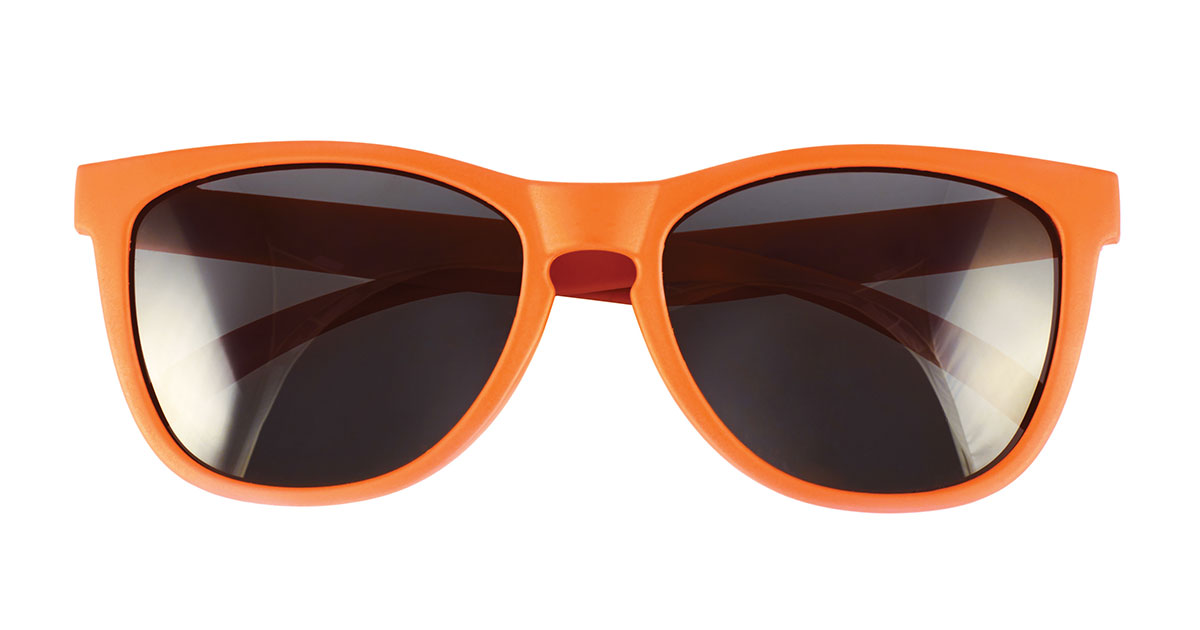BY KEITH BIGGS, OD
Selecting sunglasses is difficult for most of us. They come in all shapes, sizes, prices, colors. Which ones are the right ones? Should I pay a lot for them? Should I buy the large ones or the dark ones? Do I really need them or should I wear them just to look cool? It can be so confusing.
First, let’s answer the question: Should I wear sunglasses? The answer is yes. The sun gives off UV radiation that you can’t see or feel. In small doses, it can boost vitamin D, but too much of it can cause problems like sunburns, skin cancer, and many eye problems.
With overexposure, the sun may cause the conjunctiva (the thin membrane covering the white of your eye) to thicken and become irritated and inflamed. Sometimes the conjunctiva will begin to grow over the eye, and this is called a pterygium. Surgical removal is often necessary, as it can interfere with your vision.
Some evidence is indicating a connection between macular degeneration and the exposure to UV light. Persons with blue eyes may be more susceptible than someone with brown eyes.
Certain types of cataracts, which is a cloudiness on the lens of your eye that can also interfere with your vision, can be caused by overexposure to the sun.
Corneas can become acutely sunburned, causing serious pain and temporary blindness. When tanning beds first became popular, it was very common to treat patients who had “burned corneas.”
Cancer of the eyelids and skin around the eyes is very common, and sunglasses can help protect against the damaging rays. Sunglasses that “wrap around the side of the eye” can be beneficial as persons can get too much sun when driving in a car.
Last but not least, sunglasses make being outside more comfortable. They protect the eyes from the glare and wind which cause squinting, watering, and dryness.
Should children wear sunglasses? Yes, they should. Children are typically outdoors more than adults, making protection at an early age more crucial.
Sure, sunglasses can look “cool” depending on the style one chooses. Polarization and/or antireflective coating is selected by a lot of people in order to reduce glare. However, the most important feature is UV PROTECTION. Before you think about buying a pair of sunglasses, read the label. Does it say they block 100% of UVA and UVB rays? If not, don’t buy them. All sunglasses should have this feature to provide adequate protection from harmful rays. The size is also important. Wraparounds can block additional rays from the side, and larger frames can better protect the front of the eye.
Talk with your eye care provider about the purchase of sunglasses and what options might be best for you.


















